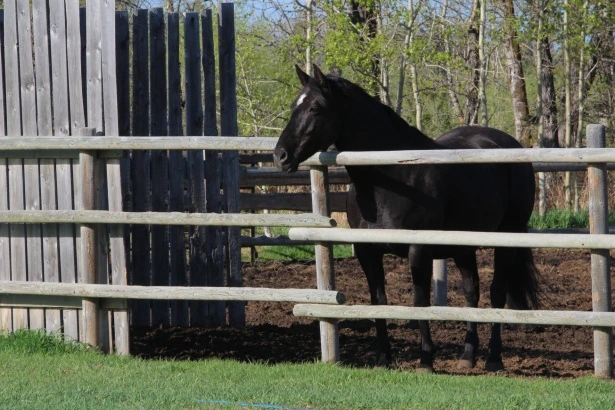Am I A Jerk Or Do I Just Have Good Boundaries?
Did you ever say “No” to someone for a justifiable, logical reason and then immediately feel like a jerk for saying it? Perhaps your logic was reasonable and you weren’t trying to hurt anyone, but just saying “No” felt harsh and filled you with self-doubt. This happens to many of us all too frequently! If you are a “people pleaser” or if you tend to avoid conflicts at your own expense, you’ll feel this tension often! I personally know this feeling a little too well.
A phenomenon called acquiescence bias makes it easier for most people to answer “Yes” or to agree with another person rather than to agree or to say how we really feel. Humans are social creatures, after all, and we need to be able to get along with others to survive. This often comes in the form of nodding during a conversation before we even process what’s being said, or going along with a popular opinion, or agreeing with an influential voice until it becomes too painful for us. All too often, however, we people pleasers find ourselves led down an uncomfortable road to a disagreeable place. Furthermore, Saying No can be especially hard for those of us with ADHD or other forms of neurodivergence. In most cases, our first impulse is to say Yes when a No would serve us much better.
Boundaries are the psychological constructs that prevent us from being taken advantage of and help us establish our individuality. The most widely accepted book on boundaries was written by doctors Henry Cloud and John Townsend and is entitled simply “Boundaries”. While this book is highly influenced by a Christian spiritual perspective, it remains the most comprehensive and widely taught book on the topic today. I’ll come back to the book in a bit.
First, to understand the concept of boundaries, let’s use a metaphor: Imagine that you are a prize horse on a prize horse farm. You spend your days in the pasture eating grass. Your pasture is large and is surrounded by a fence. The fence is there for two reasons: 1) To keep predators and horse thieves outside, and 2) To keep you inside. Now, let’s say an annoying, angry, pre-teen boy lives next door, and once in a while he likes to come agitate you by throwing rocks at you and calling you names. As a horse, you have little recourse against this action since the boy is on his side of the fence, not yours. The fence is doing its job – it’s keeping the boy out and you in. While you can’t punt that little jerk to Hoboken, like you may want to, you CAN still do something. You can walk away! You’ve got this enormous pasture that is far bigger than his rock-throwing arm could ever reach. Your response is limited to a reasonable level because you have to stay on your side of the fence, but your power comes from the fact that the little bully has to stay on his side of the fence, as well.
Here’s the cold, hard truth about boundaries:
Another person can’t cross your boundaries.
Read that again, because when I first heard this taught, I was sure that it was 100% incorrect. At the time, I felt that people crossed my boundaries frequently, especially a few particular people! I was incensed. But here’s the rest of the teaching:
Another person can’t cross your boundaries, they can only try. Boundaries exist solely within the mind of the boundary setter, who holds the power to build and enforce the boundaries as strongly as needed.
Now, I realize that this sounds like just a matter of semantics and connotations, but the difference that this new definition brings is quite empowering!! For more clarity, let me also say that boundaries are never about what someone else should or shouldn’t do, but they are always (and only) about what you will do IF someone acts in a certain way toward you.
In a famous Hollywood scandal, Jonah Hill accused then-girlfriend Sarah Brady of breaking his “boundaries” by wearing revealing clothes in her instagram pictures, among other things. The resulting discussions online shed a lot of light on what IS and IS NOT an example of good boundaries. I will stay out of the fray around this controversial topic, but let me reiterate that boundaries are always only about what you will do IF, never what another person should do. Wearing skimpy clothes in her pictures didn’t violate his boundaries, as he claimed. Arguably, he does maintain the ability to choose to end the relationship if she doesn’t change this behavior, even as stupid as his choice may be! It’s important to remember that this is an example of someone trying to use the concept of boundaries to manipulate someone else’s behavior rather than simply accepting the behavior and responding accordingly. Healthy boundaries are never manipulative or coercive, because they aren’t about the other person’s actions. They’re only about your actions. Ironically, in the Jonah Hill example, he actually tests HER boundaries by engaging in shaming and manipulation of her behavior more than she tests his. A more healthy version of this conflict might look like this:
Jonah: I don’t like it when you wear skimpy clothes in your pictures.
Sarah: I hear you. But it’s my body, my career, my Instagram account, and my life.
Jonah: Gotcha. I still don’t like it, and I’m entitled to have my opinions, but I won’t try to control you, either. You are not my property. Whether we are together or not, I can respect your freedom of choice.
This more healthy model demonstrates respect for both sides and stays away from manipulation. Both parties remain free to act as they feel is best. Both are challenged to examine their own actions, beliefs and self worth and to evaluate the health of the relationship. That’s maturity!
My colleague and friend, Charmaine Simmons, LPC describes it this way:
“When someone shows you who they are, believe them! The question isn’t ‘Why are they treating me this way?’ The question is ‘Why am I still here? Why am I allowing them to treat me this way? Why do I feel like I deserve this type of treatment?’ Those are the questions that are going to get you free. That’s it.”
For the Full Video on Facebook, click the image below:
(As always, Charmaine nailed it!)
That’s it. You can walk away. You can move yourself to the other side of the pasture. You set the boundary and you enforce the boundary. The boundary is a psychological construct. In the best, most real way, it’s literally all in your head. So, you own it! It protects you, and it’s there for a good reason. Enforcing a boundary can make you feel like an asshole, but you probably aren’t being one. Enforcing a boundary is standing up for yourself in a manner that helps you determine who should be in your daily life and who shouldn’t. Or, as Dr Henry Cloud says:
“Boundaries are a ‘litmus test’ for the quality of our relationships. Those people in our lives who can respect our boundaries will love our wills, our opinions, our separateness. Those who can’t respect our boundaries are telling us that they don’t love our nos. They only love our yeses, our compliance. ‘I only like it when you do what I want.’”
For more on boundaries, check out the book Boundaries. Also check out Charmaine Simmons, LPC’s social media accounts and videos. They’re solid gold! Lastly, If there’s a real physical risk to you if you walk away from an unhealthy relationship, seek help from a therapist, another healthcare professional, or take a legal approach to help ensure your safety!
I hope this post has been informative and helpful. I specialize in working with creative professionals across Georgia who have Anxiety, ADHD, and/or High Functioning Autism. If you’d like to speak more about these or other types of issues, please give me a call at 770 615 6300. You can also schedule a session and learn more about my practice at www.altmancounseling.com I offer telehealth and in-person sessions. I am in-network with Aetna insurance and provide paperwork for filing out-of-network claims.



0 Comments